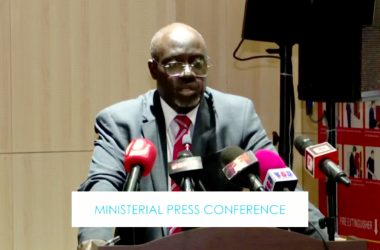The Gambia continues to face major hurdles in its efforts to combat human trafficking, despite making some progress in recent years. The National Agency Against Trafficking in Persons (NAATIP) reported 56 trafficking cases between 2023 and 2024, of which 49 were confirmed. Only three cases have led to convictions so far, while 11 are still pending before the High Court in Banjul.
NAATIP’s Executive Director, Isatou Darboe, said limited resources remain a key obstacle to enforcing anti-trafficking laws.
The agency also struggles with proper victim identification at border posts, underfunded rehabilitation centres, and low public awareness factors that contribute to many cases going unreported. Fear of consequences and retaliation further discourages victims from cooperating with authorities, making successful investigations and prosecutions more difficult.
Despite these challenges, NAATIP has seen some positive developments through partnerships with regional agencies. A Memorandum of Understanding with Nigeria’s anti-trafficking agency has helped with the repatriation of victims. Darboe noted that more than 95 percent of trafficking cases in The Gambia involve Nigerian nationals, either as victims or perpetrators, underlining the regional nature of the crime.
She stressed that a more unified West African response is needed to effectively address trafficking and smuggling networks. “No single government or law enforcement agency can tackle this problem alone,” she said. “We need to identify the gaps, strengthen ties, and develop joint strategies.”
The conversation took place during a regional dialogue organised under the ENACT project by the Institute for Security Studies (ISS), in partnership with Interpol and the Global Initiative Against Transnational Organised Crime (GI-TOC).

The event brought together representatives from the African Commission on Human and Peoples’ Rights, civil society, and national governments to promote collaboration in the fight against transnational organised crime.
While The Gambia has made some strides, authorities say sustained regional cooperation and better resourcing are crucial to making meaningful progress in the fight against human trafficking.





